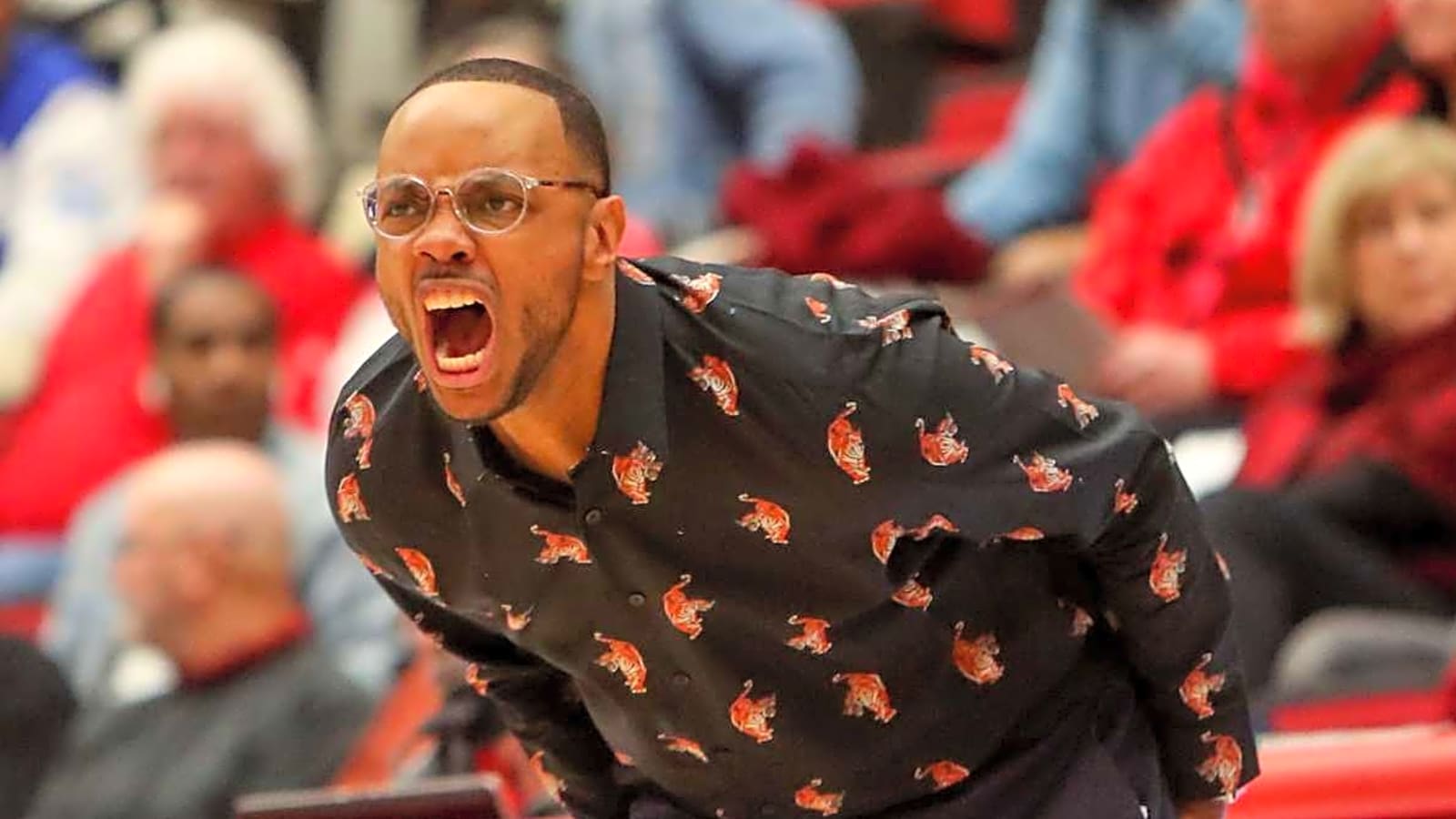
Brian “Penny” Collins didn’t just coach basketball at Tennessee State University. He changed it. For seven years, he led with vision, pride, and purpose, pushing TSU into national conversations and earning respect far beyond the Ohio Valley Conference. Now, Collins is stepping onto a larger stage, the NBA, as he joins the Memphis Grizzlies as an assistant and brings with him the heart of HBCU basketball.
The announcement hit early Monday morning: Collins had officially accepted a coaching position with the NBA’s Grizzlies franchise, becoming one of the rare coaches from a historically Black college or university to make the leap to the league. One thing is clear, his impact on HBCU sports has already left a lasting legacy.
From Underdog to Architect
When Collins took over at TSU in 2018, the program was struggling to find footing in a competitive conference. Over the next seven seasons, he crafted a program rooted in accountability, development, and brotherhood. His final year with the Tigers, a 17-16 campaign that ended in the semifinals of the 2024 OVC Tournament, was a testament to how far the program had come under his leadership.
But it wasn’t just the wins. Collins focused heavily on off-court growth, emphasizing academics, leadership, and service, values deeply ingrained in HBCU culture.
By 2024, TSU wasn’t just competing. It was earning respect.
“Coach Collins built a family-oriented culture and a competitive program that earned the respect of our conference and the broader basketball community,” TSU Director of Athletics Dr. Mikki Allen said following his departure. “We are proud to congratulate Coach Collins on this significant opportunity.”
A Trail Few Have Walked
The jump from HBCU basketball to the NBA coaching ranks remains a rare one.
While former NBA stars like Deion Sanders and Eddie George have brought attention and resources to HBCU programs in football, basketball coaching pipelines have been slower to develop. Collins’ move could open new doors.
His transition mirrors the growing push for equity in coaching representation. According to the Institute for Diversity and Ethics in Sport, less than 10% of NBA head or assistant coaches hail from HBCU backgrounds. That number shrinks even further for those making the leap directly from HBCU head coaching roles.
Collins now enters that elite tier, not just as a representative of TSU, but as a symbol for what’s possible.
The Next Chapter for Tennessee State
With Collins headed to the league, the immediate question for TSU becomes: What’s next?
Assistant Coach Erik Buggs has been named interim head coach. Buggs, who arrived last season after a successful run at UT Martin, where he helped guide the Skyhawks to a 24-win season and an OVC regular-season title in 2022–23, has deep ties to player development and already commands respect within the locker room.
Whether TSU removes the interim tag or looks externally, the hire will be a pivotal one. Collins’ success raised expectations, and the next leader will be charged with maintaining that momentum.
TSU remains the only HBCU in the Ohio Valley Conference, a status that comes with both pride and pressure. And Collins’ departure may only intensify the spotlight on the program.
Bigger Than Basketball
The story of Penny Collins isn’t just about coaching. It’s about representation. It’s about showing what leadership looks like, on your own terms.
At a time when Black coaches are still fighting for recognition in both college and pro sports, Collins’ move underscores a rising shift. HBCUs have long been hotbeds for athletic talent. Now, they’re starting to get the credit they deserve for producing coaching talent too.
This isn’t a goodbye, it’s a milestone.
It signals that the work done at Tennessee State has weight in rooms once thought out of reach.
It’s also a wake-up call to athletic directors across the country: HBCU coaches aren’t waiting for permission anymore. They’re earning and taking their place.
One Coach. One Program. One Path That Matters.
For HBCU sports fans, this is more than an NBA transaction. It’s a win for every small-budget program overlooked by the big networks. It’s a win for every Black coach working in silence. And it’s a win for every athlete who chose culture over clout.
Collins may no longer be pacing the sideline at Gentry Center, but his impact echoes beyond the hardwood. What he built in Nashville will live on, in the teammates who became brothers, the students who became men, and now, in a professional locker room that’s about to experience what HBCU coaching excellence really looks like.
And the league is better for it.
More must-reads:
- Kevin Durant headlining record NBA trade
- Report: Suns could make surprising move with Bradley Beal
- The 'Leading scorer by NBA franchise' quiz
Breaking News
Trending News
Customize Your Newsletter
 +
+
Get the latest news and rumors, customized to your favorite sports and teams. Emailed daily. Always free!








